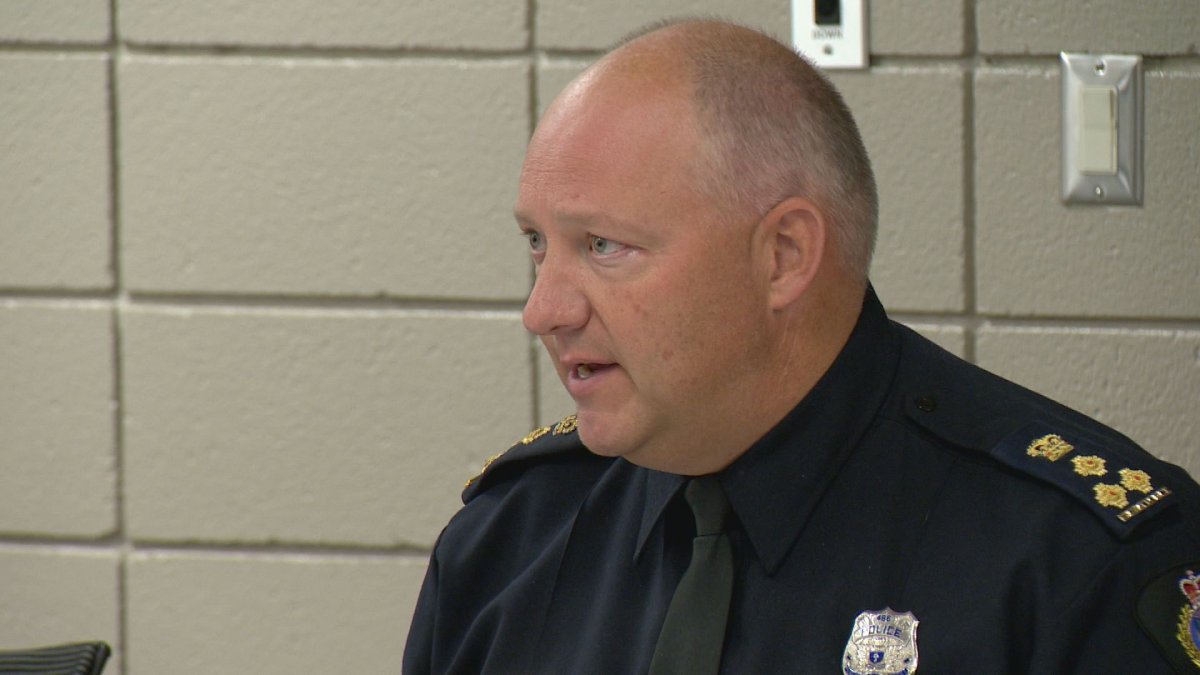Recreational cannabis legalization is three weeks away, and Regina police chief Evan Bray says the service is still getting ready for Oct. 17. They’ve already done significant work, but Bray says there are some elements that are still unknowns.

“There’s been lots of speculation around what’s the cost of this going to be on policing. We don’t know the answer to that,” Bray said. “I can tell you we have some significant training that we’ve done and will continue to do.”
The Regina Police Service currently have 11 Drug Recognition Experts (DRE), and more are slated to receive training. DREs are specially trained officers that run suspected drug impaired drivers through a battery of tests.
These tests can be used as evidence to determine whether or not a driver is impaired.
DREs are also capable of providing expert testimony in court on impaired driving charges.

Get daily National news
Bray added that over a quarter of members are trained in standard field sobriety tests too. He said that continued training would continue regardless of legalization, due to drug-impaired driving being an ongoing concern.
The Drager DrugTest 5000 is the roadside screening test for marijuana that has been approved by the federal government. Bray said has purchased one for the Regina Police Service through Public Safety Canada funding, but they have not yet received it.
“When we do get it here I think we’ll have to try and understand how it’s going to be utilized. How will it be deployed? Are we going to put it simply in a police car and have it driving around the streets of Regina?” Bray said.
“There’s benefits that come with using the instrument and there’s some challenges that have yet to be worked out yet. One of the biggest ones, and we’ve talked a bit about this already, is temperature. The machine is very temperature sensitive and we live in Saskatchewan. So that’s going to be something over the winter months that we’re vigilant to.”
Select RPS officers are receiving Drager training in Ottawa ahead of legalization, also covered by Public Safety Canada. Those members will then teach frontline officers how to use the device back home.
Within a year, Bray anticipates other roadside testing methods will likely be available as the technology continues to evolve.
As for an impact on crime, Bray said that will be something that has to wait until after legalization. For now, work will continue on training and education for RPS members.








Comments